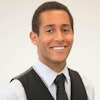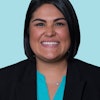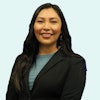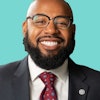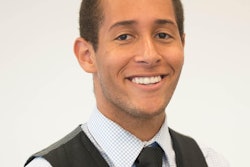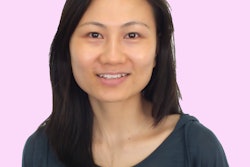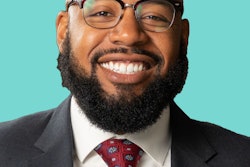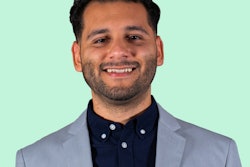Institution: University of Michigan
Graduate Program: Ph.D., Organic Chemistry
Education: B.S., Biochemistry and Molecular Biology, University of California, Davis
Mentor: The late Rolf Unterleitner, University of California, Davis; Vaughn Evans, Retired
When Matthew Culberson realized as an undergraduate at the University of California, Davis (UC Davis) that he wanted to be a chemistry professor, he immediately scoured the college’s website to find a Black chemistry professor. He wanted a role model who looked like him. But he couldn’t find one.
“I knew I needed to find a mentor in chemistry who is African American like me and can tell me about the field,” said Culberson. “Because we live in a society that has systemic racism, what it was like for Black students getting a Ph.D. looks different compared to non-Black students who are navigating those spaces. I needed that perspective.”
As a first-generation graduate student from a single-parent, low-income family, Culberson, who is also Jewish, understood the barriers he was up against. After digging through the chemistry faculty websites at other UC schools, Culberson at last found a Black chemistry professor at UC Berkeley. He reached out to Dr. Richard Sarpong and asked if he would help him navigate the process.
Sarpong connected Culberson to a fellow Black chemist, Dr. Sidney Wilkerson-Hill, who had just finished his Ph.D. and was a postdoc at the time. Today, Wilkerson-Hill is in a tenure-track position at the University of North Carolina at Chapel Hill.
“He helped me tremendously,” says Culberson of Wilkerson-Hill. “He told me about the will and perseverance I’d need in grad school, even what my CV should look like as a chemistry student applying to doctoral programs.”
Before realizing he wanted to be a chemistry professor, Culberson considered being a physician after a bout of illness showed him firsthand the racial disparities in the healthcare system. But he quickly discovered that a life as a researcher and teacher was more of a fit for him.
“I was always the one at the front of the class asking the hardest questions,” Culberson says. “I would observe something and wonder if someone is looking into it. I didn’t realize that’s what research is. A lot of mentors later told me they were waiting for me to see what they already knew: that I am a scientist.”
Culberson says his mother, who gave birth to him when she was 17 years old and about to start college, is one of his biggest motivators. His mother finished her undergraduate degree in five years at Fresno State University as a single parent raising Culberson with the help of her mother, Culberson’s grandmother. She worked told to provide for her son and her mother after her father passed away.
“My mom was determined not to be another statistic of a teen mom who wasn’t able to go to college,” he says. “When I think about what she went through, it gives me the drive to keep going on my path. My mom never got to enjoy her childhood. I want to pay it forward one day for her and hopefully create financial freedom for my family.”
In fall 2019, thanks to the help of many mentors and that inner drive, Culberson began his Ph.D. program in organic chemistry at the University of Michigan’s Rackham Graduate School. His perseverance in his scholarship as well as his support to fellow students who, like him, lack representation in their field has already made an impact.

